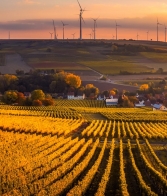Climate Change Resilience and Risk


Read the latest Quick Bites on Climate Change, Crime, Resilience and Risks >>>
ESI Quick Bites is a monthly newsletter featuring interesting publications on New Worlds, New Harmscapes.
Promoting resilience: on-farm 'tinkering' and public planning
Taking as an example one particular Australian policy document and its associated intervention strategy, the authors critically examine the assumption that this approach will improve farmers' resilience to negative events. They recommend more diversified and contextualized plural approaches to thinking about resilience, supporting farmers' own agency and their generative capacity for 'productive novelty'.
Civil society and the state in climate change
In the area of climate change, non-state actors are taking an enhanced governance role across international, and down to local scales. This detailed and nuanced case study (in a context of weak state presence and widespread corruption) examines a hybrid form of governance in which a complex array of state-led, regulatory governance operates with self-organised interests to engage in forms of steering that are not necessarily formalised. The state can govern 'through' civil society, but 'this also reminds us that civil society is constantly translating, interpreting and resisting government policy'.
Greenhouse gases and urban housing
As millions of people are projected to move into - or be born in - cities over the next few decades, conventional wisdom has it that the most climate-friendly way to house them is in tall, close-together buildings.
To test this assumption, researchers used the data from real-world neighbourhoods to construct a model for estimating greenhouse gas emissions from a range of urban housing options. The lowest emissions were associated with forms of suburban sprawl and the highest from Manhattan-style developments, while low-rise Paris-like urban fabrics produced the best balance of carbon and space efficiency.
Unintended consequences of climate change mitigation: forests
The debate about ‘climate security’ has focused on the way climate change can exacerbate threats and dangers, but less attention has been placed on the security issues associated with the responses to climate change such as mitigation. Climate change mitigation initiatives can have a significant impact on peace, conflict and security by reinforcing existing inequalities or influencing new forms of forest governance and relations among forest actors.
Constraints on the development of 'green' hydrogen
China is aiming to be a dominant green hydrogen producer, as in the case of solar. Differences from the solar environment, however, are a lack of subsidies for hydrogen and undeveloped end-user infrastructure.
Private adaptation to climate risks: mining
The private sector is increasingly seen as critical in the transition to a climate-resilient future. Based on a study of the patterns and drivers of private adaptation in 37 of the world's largest mining companies, this study concludes that there are significant gaps in the public governance of private adaptation, which is mainly driven by investor pressures and not domestic regulations and civil society. Companies adapt to climate risks in order to strengthen business resilience, while taking little responsibility to improve social resilience.
Manufacturing in a time of extreme change
This chapter in a larger work aims at supporting manufacturing firms in understanding how to leverage and use trends as a key driver for innovation and to foster their competitive advantage and stay competitive. In the current context of 'unprecedented change', however, the top item of the team's Top 10 Trends is the aim to be carbon negative.
The fossil fuel industry and carbon capture: failures and alternatives
The fossil fuel industry is presenting itself as the source of solutions through 'carbon management'. The authors of this paper examine the results so far and propose a more effective alternative approach.
Digest of Cyber Organized Crime
This digest is intended to serve as a reference guide to help criminal justice actors identify and counter cyber organized crime and address the challenges in investigating, prosecuting and adjudicating cyber organized crime, but it also contains information and insights which will be hepful to non-specialists.
The promise of machine learning in crisis response
Noting the existence of a self-reinforcing cycle in which the hardest development cases remain persistently behind while emerging and developed economies continue to progress, the authors articulate a framework to understand where the expected risks and returns of AI are highest in the context of crisis response. They caution that machine learnings are no panacea but do offer real opportunities to save and improve the lives of those affected by crisis.
Digital technology in the service of resilient critical infrastructure
The operability, functionality and interoperability of critical infrastructure are continuously challenged by multiple stressors; implementing climate resilience therefore requires a systemic and holistic approach. The authors explore how available roadmaps, tools and emerging technologies, supported by multi-stakeholder alliances, can be brought into service in alignment with the relevant Sustainable Development Goals (SDGs). Building resilience therefore also means maximising the long-term sustainability of socio-economic systems.
